QuestionA wild rabbit had a litter a couple weeks ago. One of the kits ventured out frequently, generally seeking human sounds. The others were normal pointed-face cotton-tails. This one lost a battle with a Mack truck (squashed nose), huge head, under-sized legs, and no normal fear.
After the others left the nest, it became lethargic. I took it in and it is eating now (spinach, romaine, broccoli) - all it wants is attention. It also seems to have scoliosis (best I can tell with my fat fingers). From physical and personality traits, it is closest to what I would call Downe's Syndrome - is there any veterinary term for these traits in rabbits?
If it continues to build strength I would like to release it (frankly, I don't need another pet), but I am concerned about the impact on the gene pool.
Thank you in advance,
Tom
AnswerDear Tom,
From the sound of it, this little guy will not survive long in the wild. And even if he did, I'm not sure how successful he'd be in attracting a mate (unless it's a female; male rabbits--like most male mammals--are not as picky as females about what they mate with) or raising a litter.
Down Syndrome is pretty much unique to humans. It is an accidental triplication of Chromosome #23, which normally occurs in a pair. There is probably an analogous chromosomal condition in rabbits, but since their chromosomes are different in number (and information) from ours, I'm not sure you could really expect true Down Syndrome in a rabbit.
Chromosomal anomalies come in many flavors, and many are survivable, even if they are deleterious. It's not really possible to know what's up with this little guy's genes unless you can get a tissue sample for a karyotype and/or DNA sequencing. And you're probably not going to go to that expense.
My suggestion would be to keep him with you, if possible, unless the thought of his being eaten by a predator pretty quickly doesn't bother you. Technically, it's illegal to keep wildlife. But I doubt anyone would fault you for trying to give this little misfit a happy life for as long as he can have one.
Hope this helps. (P.S. - avoid feeding spinach, as this is very high in oxalates that can cause renal problems if eaten in large quantities.) You can read about healthy rabbit diet here:
www.bio.miami.edu/hare/diet.html
What's good for a domestic is also okay for a cottie who can't be released.
Dana

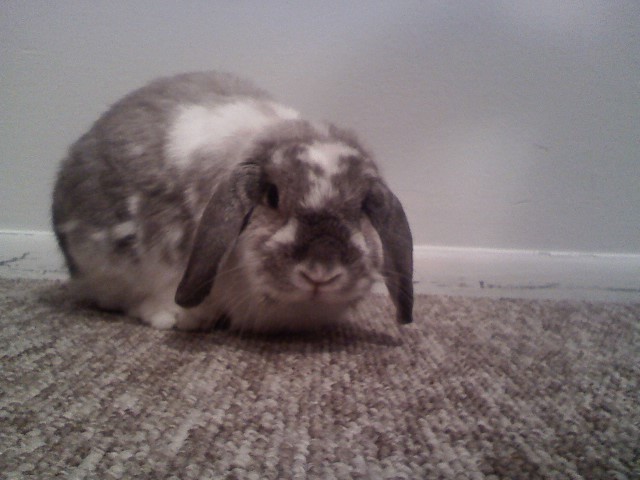 Poop butt
QuestionFoo bunny
QUESTION: I have a 4 yr old ne
Poop butt
QuestionFoo bunny
QUESTION: I have a 4 yr old ne
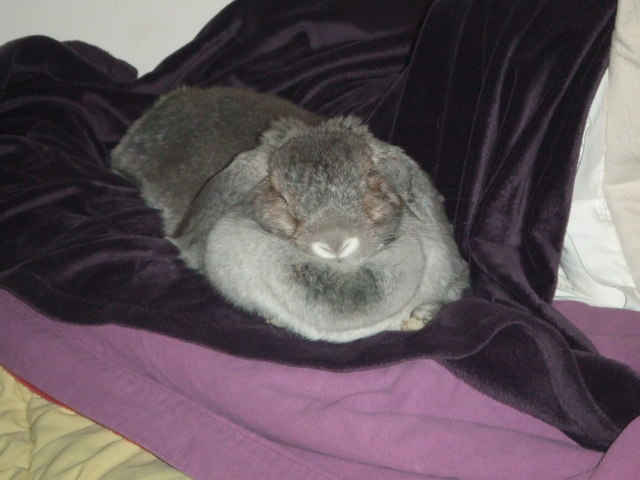 My Rabbit Vet Says She is at a Complete Loss Why Daisy is so Sick (II)
QuestionQUESTION: i would like to also add that the vet
My Rabbit Vet Says She is at a Complete Loss Why Daisy is so Sick (II)
QuestionQUESTION: i would like to also add that the vet
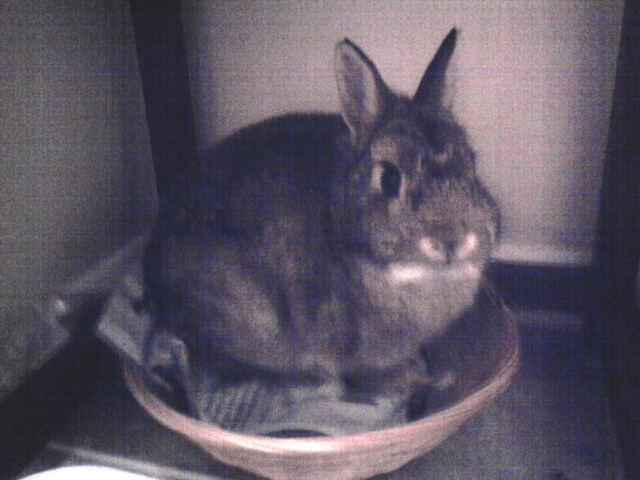 netherland dwarf rabbit!
Question
heres a picture of him
hiya.
i have a 1 year o
netherland dwarf rabbit!
Question
heres a picture of him
hiya.
i have a 1 year o
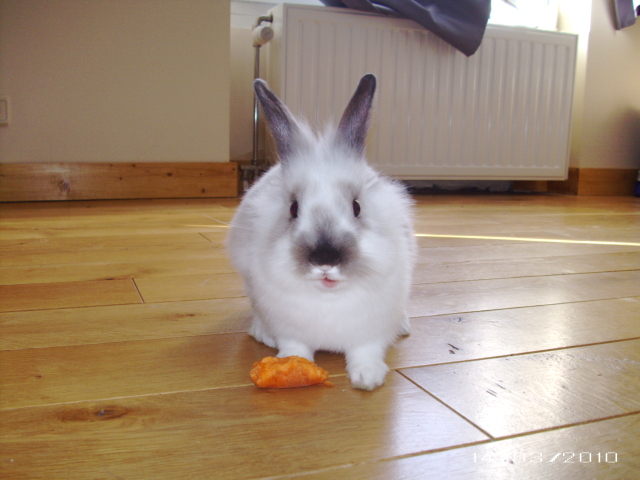 my rabbit is biting his cage
Question
my pet bunny
My pet bunny has a new cage which
my rabbit is biting his cage
Question
my pet bunny
My pet bunny has a new cage which
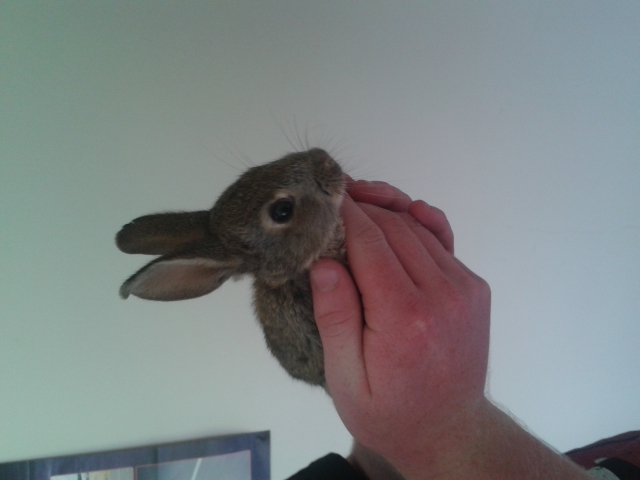 Wild Rabbit Kitten
Question
Rabbit Kitten
This morning we woke up t
Wild Rabbit Kitten
Question
Rabbit Kitten
This morning we woke up t